Local Study
The importance of local history for developing a sense of place and identity is emphasised by the National Curriculum. The local landscape and buildings can often reveal a great deal about the use of land and the type of people who lived there in the past. Buildings and landscape can reveal how long a heritage the place has had. Monuments and local heritage or parish records can highlight individual local heroes or provide a window into the lives of ordinary local people in times gone by. How similar or different were their lives? Often, the local picture can also help to reveal the national or international picture.
Sort by:
Date (Newest first) | Title A-Z
Show:
All |
Articles |
Podcasts |
Multipage Articles
-

Out and About First World War memorials in the heart of London
ArticleClick to view -

Place-names and the National Curriculum for History
ArticleClick to view -

Planning a Victorian School Day
ArticleClick to view -

Planning for local history
ArticleClick to view -
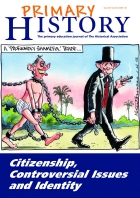
Primary History 46
ArticleClick to view -
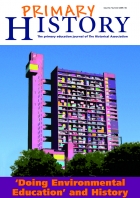
Primary History 52: Education and the Environment
ArticleClick to view -
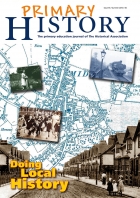
Primary History 55: Doing Local History
ArticleClick to view -

Saltaire: Planning for an effective learning experience on a living site
ArticleClick to view -
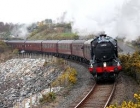
Scheme of Work: Local History – transport
ArticleClick to view -

Scheme of work: Local history – the story of our High Street
ArticleClick to view -

Scheme of work: Significant historical events, people and places in their own locality
ArticleClick to view -

School children work as archaeologists
ArticleClick to view -

School war memorials as the subject for enquiry-based learning
ArticleClick to view -
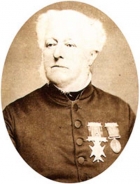
Shropshire's Secret Olympic History
ArticleClick to view -

Significant anniversaries: the infamous Beeching Report 1963
ArticleClick to view -

Take one day: undertaking an in-depth local enquiry
ArticleClick to view -

Teaching about Remembrance Day in EYFS
ArticleClick to view -

Teaching black British history through local archives
ArticleClick to view -

Teaching local history in primary schools: learning about effective practice
ArticleClick to view -

Teaching local history through a family
ArticleClick to view


